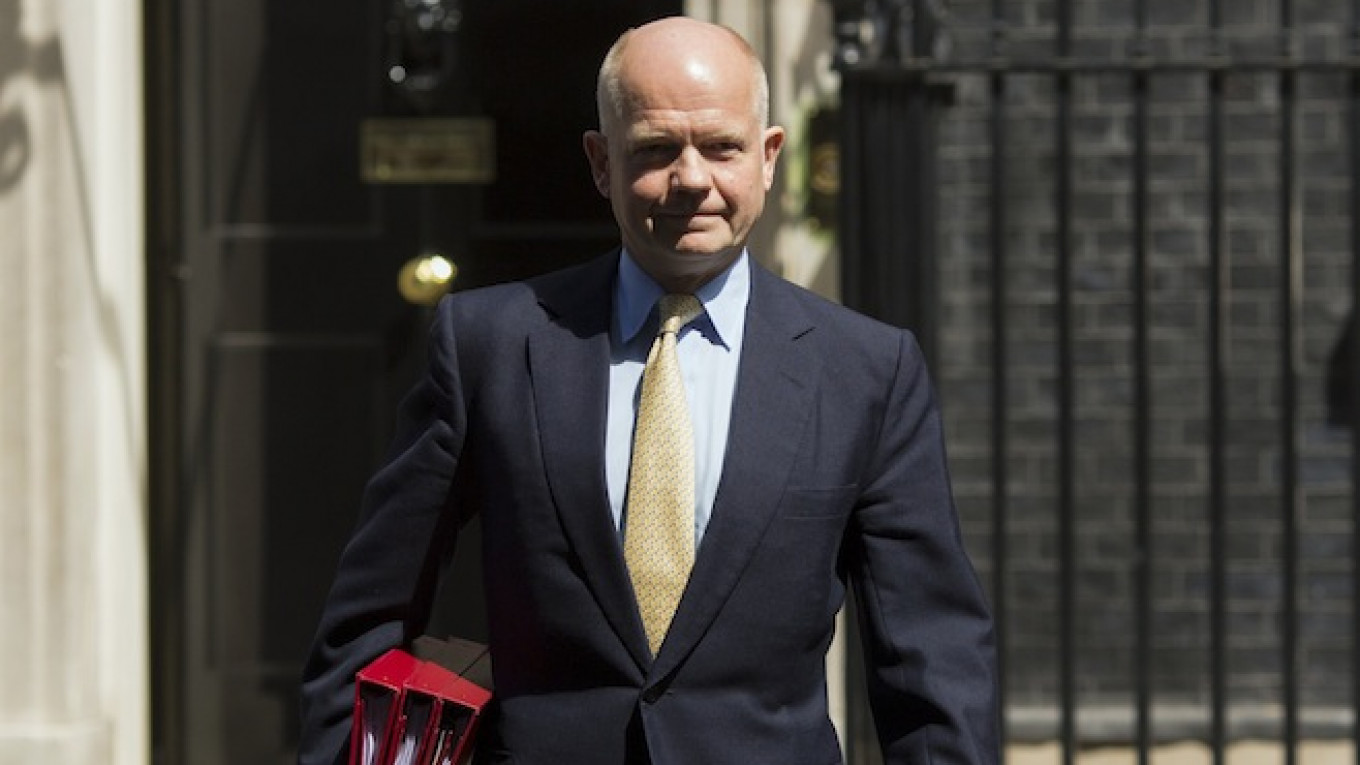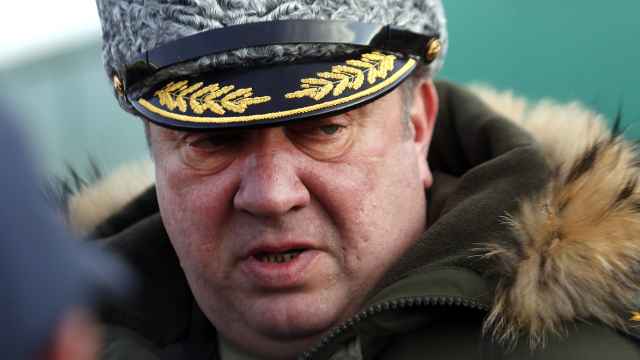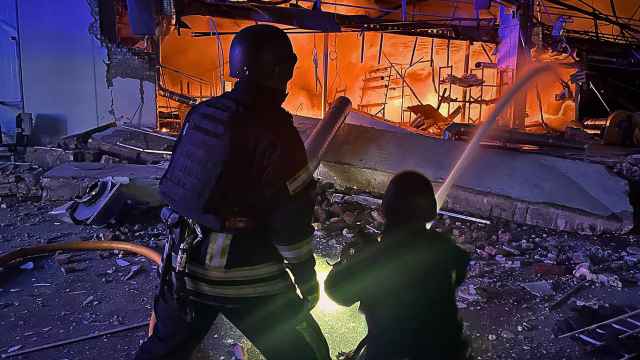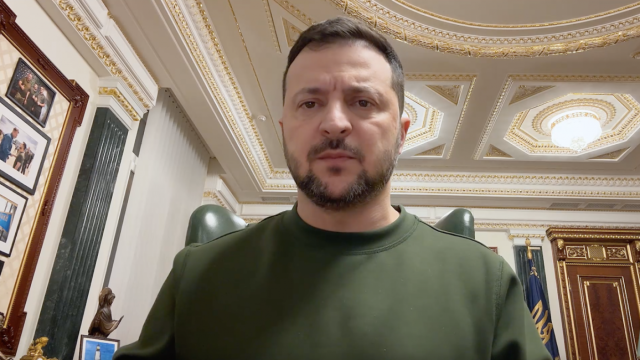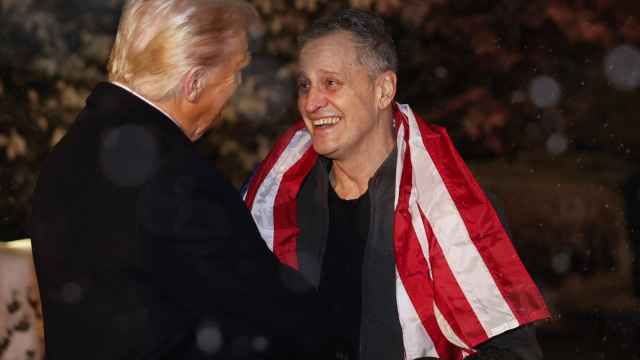LUXEMBOURG — British Foreign Secretary William Hague warned Russia on Monday that the European Union was ready to impose tougher sanctions over the crisis in Ukraine if it is not satisfied with Moscow's response to Kiev's peace plan.
Speaking before a meeting in Luxembourg of EU foreign ministers, Hague said leaders of the bloc's 28 states would weigh Russian actions at a summit in Brussels on Friday.
The EU has drawn up plans to impose a range of economic penalties on Russia but has held back from imposing them because of concerns among some member states about antagonizing their major energy supplier.
"[President Vladimir] Putin should be in no doubt that in the EU we are ready to take those measures," Hague told reporters. "A lot of work has gone on on preparing wider sanctions on Russia."
"By Friday we will be able to see how Russia is responding to the peace plan," he said.
The U.S. has already threatened sanctions on Russia's financial, defense and high-tech industries as more Russian military material has flowed into Ukraine, and has intensified talks with Europe over imposing similar measures.
"The idea here is to deny Russia the kinds of investment and next-generation technology that it needs to continue to grow," a senior U.S. administration official said last week.
The EU has so far imposed several rounds of sanctions against Russia over its actions in Ukraine, focusing largely on targeting individuals accused of destabilizing Ukraine and involved in Moscow's annexation of Crimea.
Also in Luxembourg, EU foreign policy chief Catherine Ashton said sanctions would be on the agenda this week, including during talks with Ukraine's new Foreign Minister Pavlo Klimkin on Monday, but stopped short of saying whether she supported any new measures.
"That is what the Council [ministers] will have to discuss today … But we need to base it on our discussions with the Ukrainian foreign minister," she told reporters.
Sweden's Foreign Minister Carl Bildt said there were various points of view within the EU but the option of tougher sanctions remained on the table.
"At the end of every meeting I have attended on this issue we have reached an agreement on a position that I consider rather strong," he told reporters.
Ukrainian President Petro Poroshenko wants Putin's unqualified backing for a 15-point peace plan he announced Friday.
This will include the signing on June 27 of an association agreement with the EU that contains a free-trade deal as well as a series of talks with separatist rebels and a seven-day unilateral cease-fire.
Former Ukrainian President Viktor Yanukovych refused to sign that agreement last November, prompting an uprising that brought him down and led to Russia annexing Crimea in March.
As part of their wider response to Russian actions, EU foreign ministers approved on Monday new rules prohibiting the imports of goods originating in Crimea into the EU.
In preparation for the Friday summit, German Foreign Minister Frank-Walter Steinmeier announced plans to travel to Kiev to meet Poroshenko on Tuesday.
"We hope and expect that Russia is willing to cooperate," he told reporters in Luxembourg.
See also:
A Message from The Moscow Times:
Dear readers,
We are facing unprecedented challenges. Russia's Prosecutor General's Office has designated The Moscow Times as an "undesirable" organization, criminalizing our work and putting our staff at risk of prosecution. This follows our earlier unjust labeling as a "foreign agent."
These actions are direct attempts to silence independent journalism in Russia. The authorities claim our work "discredits the decisions of the Russian leadership." We see things differently: we strive to provide accurate, unbiased reporting on Russia.
We, the journalists of The Moscow Times, refuse to be silenced. But to continue our work, we need your help.
Your support, no matter how small, makes a world of difference. If you can, please support us monthly starting from just $2. It's quick to set up, and every contribution makes a significant impact.
By supporting The Moscow Times, you're defending open, independent journalism in the face of repression. Thank you for standing with us.
Remind me later.


